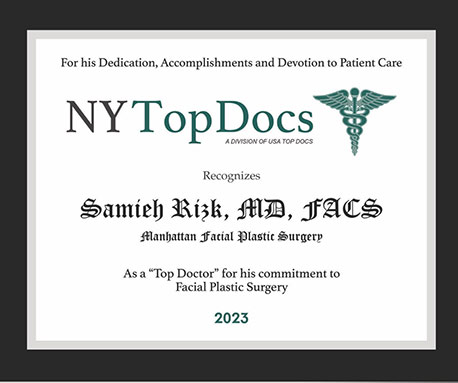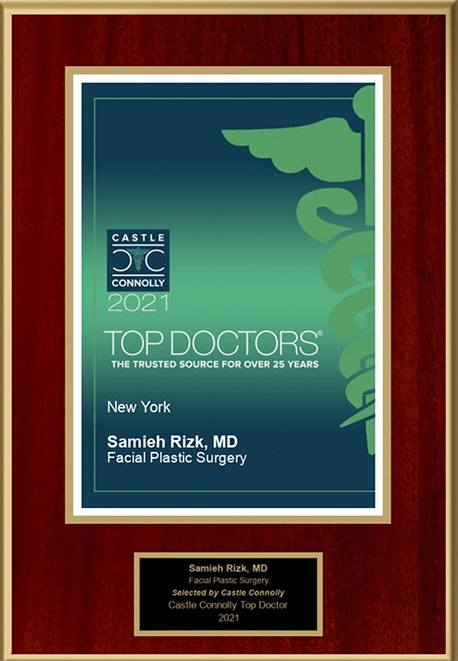Combined Procedures
-
Combining a Rhinoplasty with a Chin Implant
Almost a third of rhinoplasty patients have large noses and small chins. Sometimes it is necessary to add a chin implant to achieve harmony between these and other facial features. Chin implants come in a variety of sizes and shapes; your facial plastic surgeon will discuss the options with you.
Read More -
Rhinoplasty Combination: Nose Deformities
A cleft lip is a separation or split in the upper lip. Cleft lip forms in the early stages of pregnancy. It occurs when the mouth and/or lip area lacks tissue, and the tissue available fails to properly draw together. One in 700 babies is afflicted with cleft lip each year.
Read More -
Combination Surgeries: Rhinoplasty with Facelift
For some, having rhinoplasty performed in conjunction with a facelift is the best option to reverse the effects of age. Studies have shown that noses really do change with age. The size, shape and volume of noses can change over time.
Read More -
Facial Laser Surgery and Rhinoplasty
In most cases rhinoplasty alone is sufficient to produce the results a patient is looking to achieve. However, older patients sometimes have aging-related concerns that rhinoplasty cannot address. In these circumstances, combining laser skin resurfacing with a rhinoplasty procedure may lead to a better overall result.
Read More -
When to Combine Rhinoplasty with Septoplasty
Rhinoplasty and septoplasty are two separate procedures. Rhinoplasty addresses both external and internal tissues of the nose for functional and/or aesthetic reasons, while septoplasty deals exclusively with internal tissues/structures and is performed solely for functional reasons – namely to restore proper breathing and airflow.
Read More -
When You’ll Need to Get a Rhinoplasty with a Sinus Surgery
The only way to know for sure if you need sinus surgery is to undergo a thorough evaluation from an ear, nose and throat specialist (ENT). Sinusitis can have multiple causes, from allergies to polyps or septal deviation. Your ENT can determine which if these applies to your case. Your exam will include a full evaluation of your ear, nose and throat, and may include allergy tests.
Read More








